Navigating the Mountains in Our Minds: An Interview with John Padilla
Recently, I had the opportunity to sit with the incredibly talented John Padilla: skier, graduate student, and filmmaker. John Padilla recently produced The Mountain in My Mind, a film that aims to break down the stigma around mental health by increasing conversation within the ski industry. After losing his 15-year-old younger brother to suicide in 2019, Jack and his father set out to create this film. Having experienced the high rates of mental health issues in mountain towns, where ski fanatics go to play, work, and live, Padilla saw a need to open this conversation through film. After his brother’s passing, he created a non-profit called “JackStrong17,” Jack, being his brother’s name and 17, for his lacrosse number. The foundation seeks to end teen suicide by helping high school students have an outlet with their school’s admin. Through staging walkouts and creating media attention, these students have had opportunities for mental health empowerment through Jackstrong17. Padilla coaches teenagers in “creating leverage” and establishing a platform for their voices to be recognized to receive the mental health resources they need. As he began collecting data for his undergraduate neuroscience thesis, he noticed a trend. His research focused on the relationship between rural and mountain towns with access to mental health resources. John soon discovered that in mountain towns, suicide rates are triple the national average. That’s a pretty staggering fact. This inspired him to dig deeper and talk to fellow skiers and friends in the outdoor community. He encountered that everyone had connections to those who have died by suicide or to those currently struggling with mental illness. This solidified his motivation to do something more.
Padilla had the idea for The Mountain in My Mind and it later became a reality after recognizing his skillset and network. When producing and promoting it, his goal was to reach the ski community he’s part of. He admitted that the filming process was a new challenge, but with a background in commercial film and photo, he was cut out for it. The process took a great deal of organization, especially of raw footage. Nonetheless, John composed an incredibly moving and powerful story.
In mid-November, The Mountain in My Mind came to Salt Lake. I had the privilege to attend and photograph the event where I met Padilla and was captivated by his mission. Without giving too much away before you go watch the film yourself, here’s a brief overview. The film, comprised of female and male skiers, stretches across the Snowsports industry, from urban settings to big mountains, backcountry mountaineering, and everything in between. Similar to the spectrum of ski styles, there was a representation of different forms of mental health issues they struggled with. After athletes sat down and had their chance to tell their personal stories, the film fades into a montage of their skiing around their desired location. This combined the rawness of their stories with the pure adrenaline and beauty of skiing. Padilla said his aim was to make it feel like a vulnerable conversation so that the audience could relate to the athletes in some way. We all may be able to connect to the film through our love for the sport, or the outdoors, but drawing light to the fact that we are all humans, navigating our way through life, was the key point. We might rely heavily on our individual communities, outdoor recreation related or not, to give us the necessary support that keeps us motivated and help balance ourselves. As a part of the ski culture myself, I find connections more meaningful and my community tighter when I bridge the gap from just a fellow skier to a fellow human.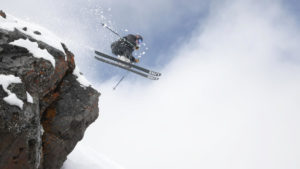
There are a multitude of reasons why skiing and mental health are intertwined. I asked Padilla what the motivation was for making the film ski-focused instead of about mountain towns in general as well as what the ski community means to him. There’s an obvious answer; he’s been skiing since he could walk, so it’s evidently become a huge part of his identity. On a larger scale, however, he wants to protect and unite the community and promote emotional, physical, and environmental sustainability. With the uncertain future and changing culture of skiing, there are efforts on all fronts by organizations and communities to preserve the sport as a whole. One of Padilla’s intentions with the film was to create a “connection-point” between members of the community, to bring people closer together on a more intimate level to support one another. He stated that although the sport might change due to environmental shifts, “the people won’t change.” So, like in any population, the sustainability of people’s mental health produces better outcomes for everyone involved. He views the outdoors, and skiing, as a place of rehabilitation, his “temple” and “religion” per se. Most people who recreate outdoors can share this feeling, that the outdoors is a safe escape, a place to recharge, to connect with people and nature. Working together to protect the natural spaces that we seek out to replenish our psychological health begins with mental sustainability. Padilla wants to help promote and raise awareness of this so that everyone can continue to recreate together a long way down the line.
Everyone has a different routine and method that helps them take care of their mental health. For Padilla, the tools that help him are therapy, medication, exercise, being outdoors, and a supportive community. He also finds mental content through helping others and being actively a part of the change. He said that it took a lot of trial and error, that you might not find your perfect combination of resources the first time, but that solutions exist.
My final question for him concerned balancing school, recreation, and mental well-being in a healthy way. As a college student, there are sacrifices you might make every day in each of these areas. A common theme, especially when it starts dumping snow in the Wasatch, is for students to ditch class to go play in the mountains. Padilla nodded and laughed at my comment on dwindling class sizes once winter rolls around but encourages anyone deciding between some powder turns or class, to choose the latter. His key to this resolution is in finding “intrinsic motivation” in his education. That means not dragging yourself to class just because you’re concerned about your grade, but because you’re interested in your degree content. One thing that helped him reach this level of motivation was understanding how his education isn’t a handout, it’s an opportunity to invest in his future. As a neuroscience student, he gave me the quote “When our bodies fail, our brains prevail” as a nod to when as athletes our bodies no longer allow us to recreate how we prefer, we still have the knowledge to carry us forward in life. Most athletes can understand the nagging thought of what would happen if they suffered from an injury that prevented them from participating in their choice of recreation. Padilla says that college is a great way to support your own future and learn skills that carry out into your leisure time, like time management. He also advised to “find the meaning in the small things in your everyday routine”, as cliché as that sounds, as a method to maintain motivation.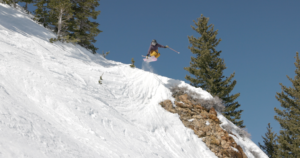
I encourage everyone to go watch this film, no matter if you recreate outside or not. The goal of this film is to raise awareness about mental health, to break down the barrier and allow people to have conversations. Mental health is an incredibly prevalent and pressing topic in our society today and resources are available for anyone who wants or needs it. Although the system isn’t perfect, people, like Padilla, are “shaking up the industry” and making direct impacts that benefit a large population of people. I asked, if anything, what he wanted people to walk away from the film with. He said that number one, there is hope. The film is meant to show representation of mental health to help people relate to one another, to know that people are out there who care and who can help. Number two, he said, is to have a conversation with your loved ones. He advised to ask direct questions, to ask what they’re feeling and if they need help since too often people are just waiting for you to ask and check in instead of asking for help themselves. It’s a vulnerable position to be in when advocating for your mental health, but Padilla advised to directly ask for help, people are out there who want to support you.
You are not alone.
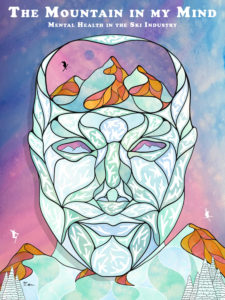 I would like to thank John Padilla for sharing his story and taking the time to sit down with me for this article. He has plans to produce a second, more art-focused, film to continue increasing the reach and awareness of mental health issues and to keep rattling the outdoor industry by breaking the stigma.
I would like to thank John Padilla for sharing his story and taking the time to sit down with me for this article. He has plans to produce a second, more art-focused, film to continue increasing the reach and awareness of mental health issues and to keep rattling the outdoor industry by breaking the stigma.
The Mountain in My Mind is free to watch on YouTube. Follow along with upcoming projects and stories on Instagram via @mountaininmymind.
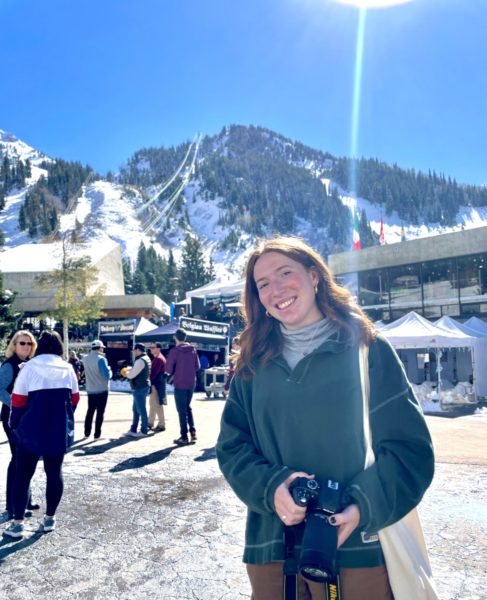


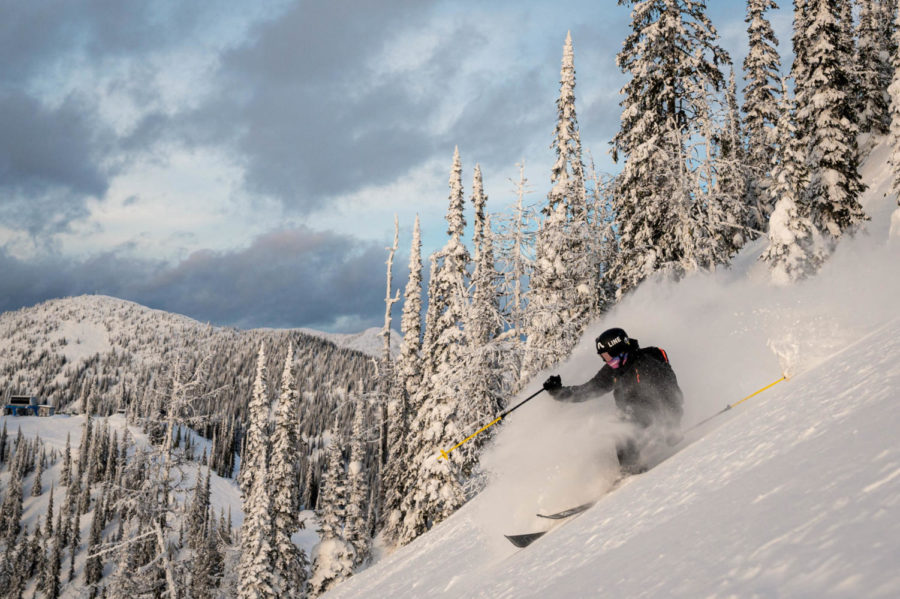
Rick
Mar 23, 2023 at 9:22 pm
Incredible article & incredible young man!